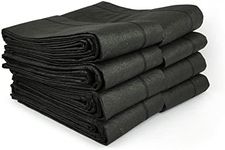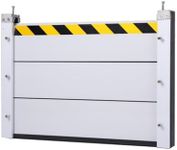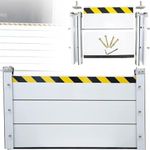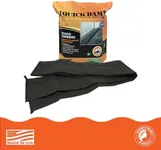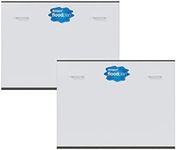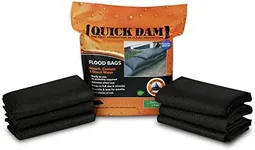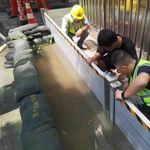Buying Guide for the Best Flood Barriers
When choosing flood barriers, it's essential to consider the specific needs of your property and the potential flood risks in your area. Flood barriers are designed to protect your home or business from water damage by preventing water from entering. The right flood barrier for you will depend on factors such as the size of the area you need to protect, the expected water levels, and how quickly you need to deploy the barrier. Understanding the key specifications of flood barriers will help you make an informed decision and ensure that you choose a product that provides the best protection for your situation.MaterialThe material of a flood barrier is crucial because it determines the barrier's durability, weight, and ease of use. Common materials include metal, plastic, and fabric. Metal barriers are typically very durable and can withstand high water pressure, making them suitable for areas with severe flooding. Plastic barriers are lighter and easier to handle, which can be beneficial for quick deployment. Fabric barriers, often filled with water or sand, are flexible and can be used in various situations. Consider the severity of potential floods and how often you might need to deploy the barrier when choosing the material.
HeightThe height of a flood barrier is important because it determines how much water the barrier can hold back. Barriers come in various heights, from a few inches to several feet. If you live in an area prone to minor flooding, a shorter barrier may suffice. However, if your area is at risk of significant flooding, a taller barrier will provide better protection. Assess the historical flood levels in your area to determine the appropriate height for your needs.
Deployment TimeDeployment time refers to how quickly a flood barrier can be set up. This is crucial in emergency situations where time is of the essence. Some barriers can be deployed in minutes, while others may take longer. If you need a barrier that can be set up quickly, look for options that are lightweight and easy to assemble. Consider your ability to deploy the barrier quickly and whether you have assistance available when choosing a product.
ReusabilityReusability is an important factor if you expect to use the flood barrier multiple times. Some barriers are designed for single use, while others can be used repeatedly. Reusable barriers are often more cost-effective in the long run and are typically made from more durable materials. If you live in an area with frequent flooding, investing in a reusable barrier may be a wise choice. Consider how often you anticipate needing the barrier and whether you have the means to store it when not in use.
Ease of StorageEase of storage is a practical consideration, especially if space is limited. Some flood barriers are compact and can be easily stored in a garage or shed, while others may require more space. If you have limited storage space, look for barriers that can be folded or disassembled for easy storage. Consider the available storage space in your home or business and how often you will need to access the barrier when making your decision.
